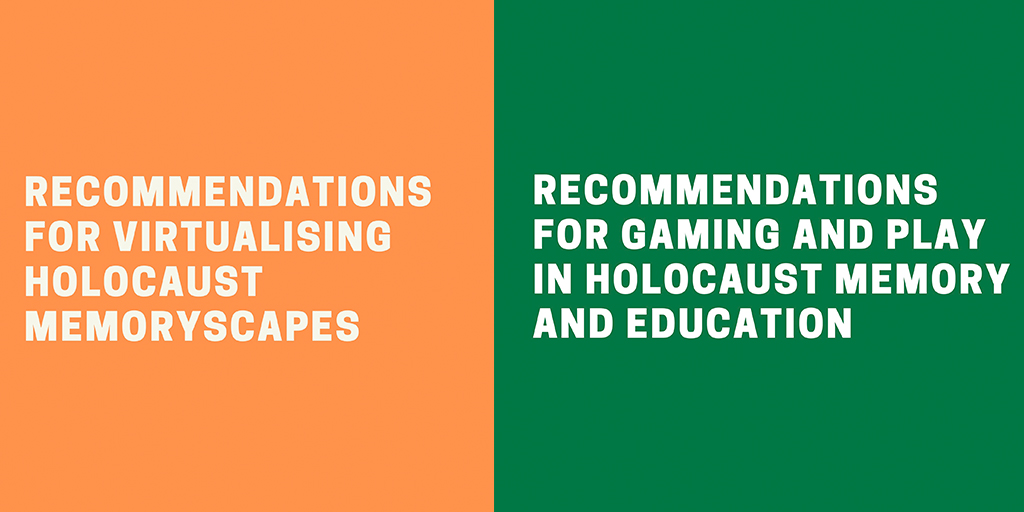
Shaping the Future Use of VR, AR and Computer Games in Holocaust Memory
by Dr Victoria Grace Richardson-Walden
As more Holocaust institutions feel emboldened to incorporate digital media into their practices, it is increasingly urgent that there are clear guidelines to help shape their thinking.
In response to this urgency, the new Landecker Digital Memory Lab has arrived and begins by publishing the final two recommendation reports of the Digital Holocaust Memory Project’s previous work. They offer guidelines for a more sustainable approach to using virtual and augmented reality, and computer games for Holocaust memory and education.
The latest reports mark the completion of the set, which broadly looked at digital interventions in Holocaust memory and education (read the other recommendations here, which cover AI and machine learning, digitising material evidence, social media and digitally recording, recirculating and remixing Holocaust testimony).
The reports ask provocative questions of those responsible for the future of Holocaust memory: major tech companies, policymakers, academia, and Holocaust museums, memorials and archives.
Key recommendations from the two latest reports, ‘Virtualising Holocaust Memoryscapes’ and ‘Gaming and Play’ include:
- conduct thorough research into the impact of digital Holocaust projects
- establish technology working groups to help propel development in this field
- create spaces to share knowledge and ideas
- provide training and support for interdisciplinary exchange
- rethink the design process of digital Holocaust memory projects
- re-evaluate funding models
- create a people or skills directory to enable collaboration
- develop a non-profit streaming platform dedicated to Holocaust-related games
If you would like to get involved in putting these recommendations into practice, get in touch.
The launch of the two newest reports marks the end of this two-year co-creation project. They form part of a raft of plans to make sure that the lab’s objectives are informed by what is needed within the sector, rather than imposing needs onto Holocaust organisations for the sake of research.
The team at Sussex wishes to thank all of the project partners: The University of Bern; iRights.Lab, Germany; The Centre of Life Writing and Life History, University of Sussex; The Hebrew University; Future Memory Foundation; and the Historical Games Network; the funders: Economic and Social Research Council, School of Media, Arts and Humanities, and the Alfred Landecker Foundation, as well as the Higher Education Innovation Fund which supported some of the pilot activities that addressed actions raised in the reports; and of course all of the workshop participants, without whom there would be no content to these reports.
Want to know more?
Watch our discussion on virtual reality and 360-degree technology in Holocaust memory.
Watch our discussions on Holocaust games: part 1 and part 2.